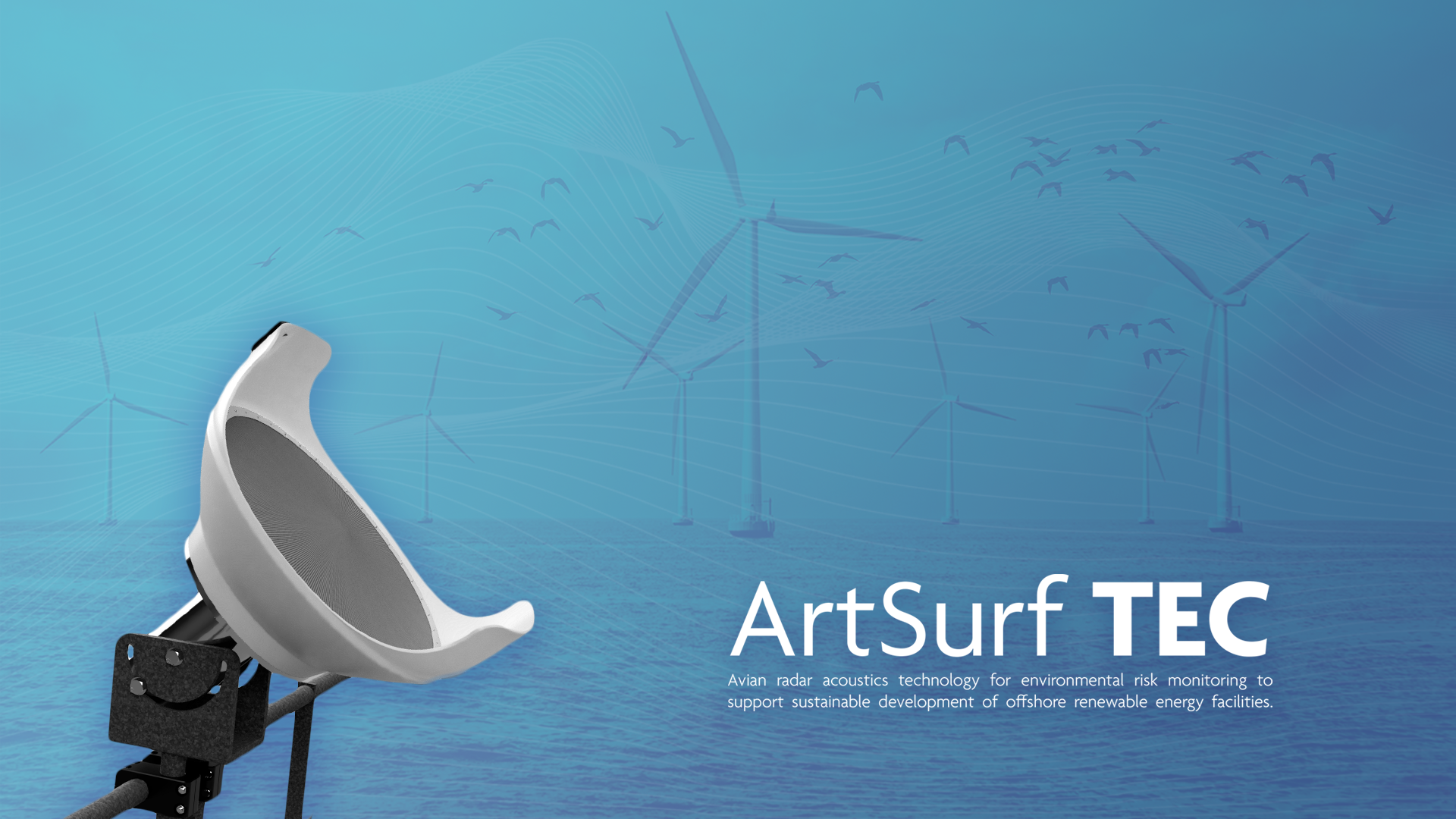ArtSurf TEC
ArtSurf TEC

Promoter: Strix, Lda.
Partners:Norwegian Institute for Nature Research
EEA Grants: 553.846,00€
Total Amount: 651.583,00€
Grace Code: PT-INNOVATION-0106
Programme:
The exploitation of wind energy, particularly in the marine environment, presents several advantages, however it is responsible for thousands of seabirds deaths every year, many of them of protected species. This issue conditioned the implementation and growth of these wind farms, being responsible for long downtime periods of energy production, causing high losses (it is estimated that annually offshore wind farms may experience losses of up to 20% due to stoppages due to birds).
The ArtSurf TEC project focuses on the development of an innovative solution, which using radar technology, sound cameras and microphones, makes possible a complete environmental monitoring and marine surveillance of seabirds, cataloging the various species and providing the necessary information for decision making. This solution will allow early detection of bird species before they reach the wind farm. In case of selected species and in situations of risk of collision, the turbines are selectively turned off until the risk of collision is eliminated.
Strix main activities will be related with the definition of the technical requirements of the projects, as well as the development of monitoring software and hardware and will be the entity responsible for the implementation of the pilot and its testing. NINA is specializing in processing bird data, so they will be responsible for analysing collected data, handling it and defining forecasting models.
This technology will prevent thousands of seabird deaths and contribute to the protection of endangered species and it is also an important support tool to developers and managers of offshore windfarms, allowing an optimization of the layout and downtime due to the impact of the passage of seabirds. It’s estimate that this solution will prevent 99% of bird’s deaths and losses in electricity production due to the passage of birds will be only 0.03%.